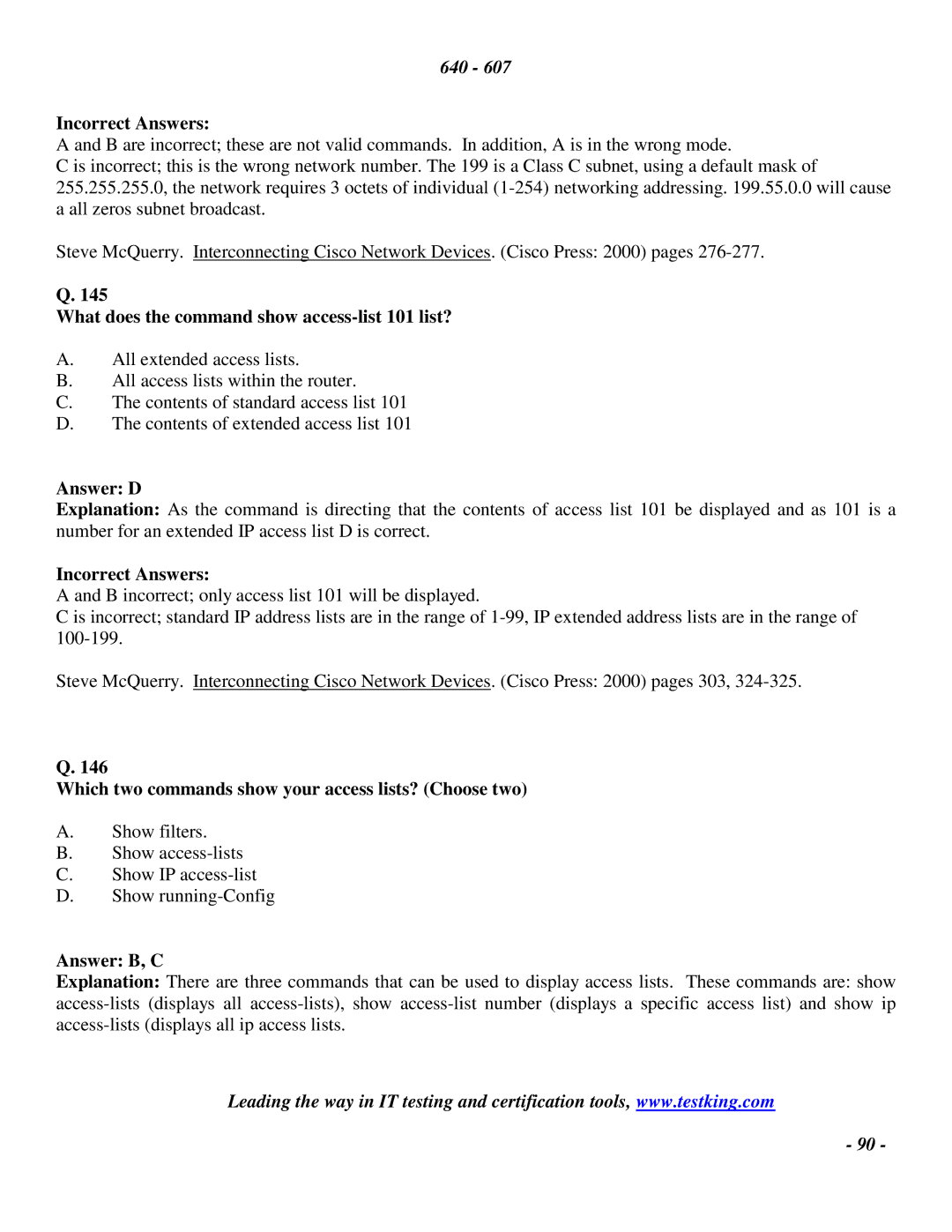640 - 607
Incorrect Answers:
A and B are incorrect; these are not valid commands. In addition, A is in the wrong mode.
C is incorrect; this is the wrong network number. The 199 is a Class C subnet, using a default mask of 255.255.255.0, the network requires 3 octets of individual
Steve McQuerry. Interconnecting Cisco Network Devices. (Cisco Press: 2000) pages
Q. 145
What does the command show access-list 101 list?
A.All extended access lists.
B.All access lists within the router.
C.The contents of standard access list 101
D.The contents of extended access list 101
Answer: D
Explanation: As the command is directing that the contents of access list 101 be displayed and as 101 is a number for an extended IP access list D is correct.
Incorrect Answers:
A and B incorrect; only access list 101 will be displayed.
C is incorrect; standard IP address lists are in the range of
Steve McQuerry. Interconnecting Cisco Network Devices. (Cisco Press: 2000) pages 303,
Q. 146
Which two commands show your access lists? (Choose two)
A.Show filters.
B.Show
C.Show IP
D.Show
Answer: B, C
Explanation: There are three commands that can be used to display access lists. These commands are: show
Leading the way in IT testing and certification tools, www.testking.com
- 90 -
